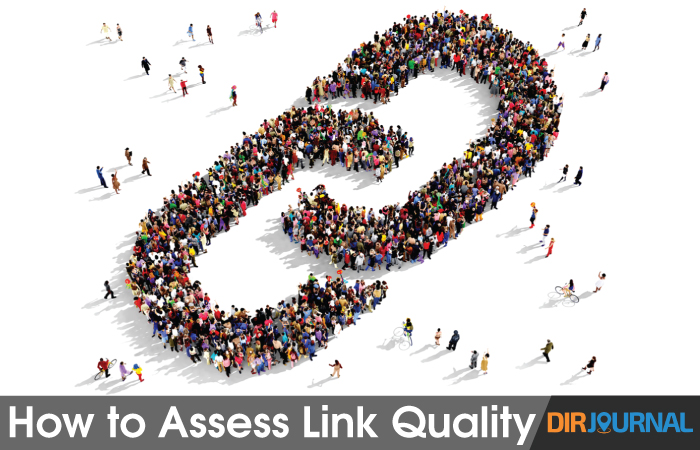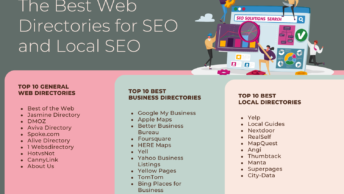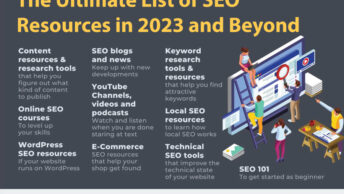If you spend any time reading or learning about SEO or link building, you will come across the phrase “build good links” or “build quality links” more than once. But what makes a good link? And how can you tell if a link is worth chasing? In this post, we’ll take a look at some aspects of assessing link quality.
Trust – IMHO trust is the most important factor in getting a link. Why are trusted links more important? Each link passes a little trust on to your website. Once you have obtained enough trust, search engine algorithms will let you rank for more competitive terms. Unfortunately, there isn’t a public metric that you can look at for link trust. Many link analysis services such as Majestic SEO or SEOmoz will publish an estimated link trust score. While not perfect, these are helpful.
Authority – After trust, authority is the next most important link quality. Authority speaks to the number of links you have.
How does trust differ from authority? I’ll use a high school analogy to make it easy to understand. If half the students voted for you for student council president, that would be authoritative. However, if half the teachers said you would make a good student council president, that would be trustworthy. If the teachers said you would make a good president but none of the students agreed, that would give you trust without authority, which is not a good combination. If most of the students voted for you but none of the teachers believed you were qualified, that would give you authority without trust, which is also not a good combination. You want to achieve a combination of trust and authority. At that point, you have what it takes to rank well for competitive terms.
Link Age – Are new links worth less then older links? IMHO yes they are. The longer a link has been around, the more likely search engines are to believe it was given editorially. If you are getting links but people take them down shortly after, that’s not a good signal for the search engines to see. While it’s true that some sites go down, either temporarily or permanently, and many sites do change and update links, if you have a large number of links in your profile that change, it looks bad. It’s in your best interest to get links that will have a long life.
Anchor Text – Anchor text consists of the actual words that people put their mouse on and click to get to you. The linked words–and the surrounding words, to some extant–give the search engines some idea of what your page is about. The more anchor text you have pointing to you for “blue widgets,” the more likely a search engine is to believe that’s what your website is about. However, there is some danger here. If all of your links have the same anchor text, or if there isn’t a lot of variation, it looks manipulated from a search engine perspective. If you try and focus your anchor text too much, it may be counterproductive and actually hurt your rankings. Focus your anchor text to help you rank for the keywords you want, but don’t obsess over it or push so hard that it looks fake.
Destination URL – The destination URL is the page that the link connects to. For most websites, the homepage is the most frequently linked-to page and the one with the most links. Similar to anchor text, you need to have diversity in your destination URLs. It’s natural for some pages to get more links than others; however, it’s possible to have too many links to a page. If you try to build too many links to a particular page, usually a commercial page, a search engine may see this as manipulated, and it will work against you. So try to balance your destination URLs as much as possible.
Topicality – IMHO this is one of the weakest signals. If you are a plumber, having links from other plumbing websites is a good thing and completely natural. It’s also likely you will have links from other local businesses in your area. To some extent these act as signals, telling search engines what you are about and what areas you serve. However, hopefully you get links from other websites that aren’t about your subject matter as well. As long as you have a good mix, it’s not something to worry about. The only cause for concern would be if all of your links were from off topic websites–to a search engine, that would look unusual.
Homepage Links Versus Insite Links – Getting a link from another website’s homepage is going to be the strongest link you can get. However, in most cases, those links are temporary, and they get archived to another part of the website. Again, this is a perfectly natural behavior and not something to be concerned about. As long as the site has a decent architecture and the search engine spiders can crawl it and find it, there’s nothing to worry about. Don’t obsess about only getting homepage links. It’s another signal that would make your website look manipulated.
Number of Links on Page – IMHO Google changed the way they evaluate links and, as long as there aren’t hundreds of links on the page, the number of links on page won’t matter that much. Would I prefer to be on a page with less links? Sure, but only because it makes my link more likely to get clicked, not because it means more “link juice” flows to my link.
Placement on a Page – Where your link exists on a page is one of the aspects I feel is important. In my opinion, Google has the ability to look at a website and tell the template from the content and weight the links accordingly. Weights that are in the content are of more value than links elsewhere, especially in the footer.
Sitewide Links – In my opinion, this type of links is the worst to get and can even be dangerous. Getting a sudden surge of site-wide link from one or more websites might have a negative effect on your backlink profile. If you are a brand new site, getting a site-wide link from a page with 20,000 pages could throw your backlink profile off. For sites that have been around a while or already have lots of trusted links, this is a non issue. The only time to worry is when your website is new or when your backlink profile isn’t trusted and authoritative.
Hopefully this article has given you some insight about how to assess some of the most important qualities of links, and you will have a better understanding about what you are looking at and what types of links you should concentrate on building and working on.
Photo credit: Photospin







Not sure I agree with “Topicality” or the strength from a related page. If a page about blue widgets links to another page about blue widgets it has to help.
It’s truly important to assess the quality of back links, and this post provides complete information.
I wonder about the links that website designers get from the sites they design; in the footer they provide ‘Site Designed by ….’. I am not sure how search engines treat treat these links as.